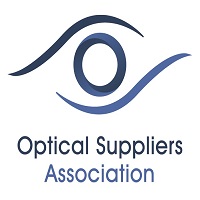General News
Dyslexia Screening Bill, Second Reading due, but will no one support?
Dyslexia Screening Bill, Second Reading due, but will no one support?
A Bill to require screening for dyslexia in primary schools; to make provision about the teaching and assessment of children found by that screening to have dyslexia; and for connected purposes was first read on 7th December by Matt Hancock (MP West Suffolk, CON) a Private Members Bill on Dyslexia Screening under the ten-minute rule.
It is due to return for a second reading on 18th March in the Commons.
It is however unlikely to be debated given that it would require unanimous consent to progress.
Matt Hancock introducing the bill stated,” I am proud to be dyslexic, but it was not always that way. As a teenager, I did not know I was dyslexic. I spent my school years focusing on maths and science subjects, always trying to avoid anything that needed more than a few sentences. I got into the University of Oxford through an interview, knowing that if I had to take the exam, I would fail. It was only there that my dyslexia was identified. My tutor—a brilliant man—took me to one side at the end of my first term and said, “The problem is, Matt, you can talk, but you can’t write.” I have always been quite good at the talking bit. He got me an assessment and I was diagnosed with dyslexia. My diagnosis was a lightbulb moment for me: years of frustration at school all made sense.
“I was lucky because I was at one of the best universities in the world and they essentially taught me how to read and write again. I was taught how to deconstruct sentences and how to learn each word as a picture, because my mind works in pictures. Shortly afterwards, Microsoft invented spell check, for which I want to put on record my thanks. After a few false starts, I learned to love words—and here I am in a job that is dominated by them. But I was one of the lucky ones who was caught, and too many children are not caught early enough.”
“It is a quiet scandal that an estimated four in five dyslexic children—80% of them—leave school with their dyslexia unidentified. That means that young adults are going to university and into the workplace with the same wrong mindset that I had—that they just find reading and writing difficult—so their potential is unrealised and often their confidence is undermined. Without their dyslexia being spotted and supported, many children will not only fail to reach their potential but fail to leave school with the qualifications they deserve.”
Our own Optical Community seems to have been strangely absent from the debate and one wonders why?
It is one of those opportunities that our profession could bid to deliver, providing benefit to children and the social welfare of many who fall by the wayside.
It is not surprising that the prisons are full of people who have failed to fit in ofetn found with undiagnosed eye problems and dyslexia.
One would think that this was an opportunity to yet again display our professionalism to the public and the benefits that our training can bring.
Rather like the debacle on DVLA tests it would seem that individual professional bodies have failed to pick up on this opportunity. Maybe for some there’s a risk of clogging up appointment books with no likelihood of commercial benefit, or maybe we don’t recognise dyslexia as being a problem of interest.
Perhaps it will be picked up in the future by Orthoptists, school nurses or even Specsavers, we will wait and see.
One would have thought that BABO British Association of Behavioural Optometrists would have declared an interest and vocally declared a backing of the Bill.
Or maybe the more balanced constitution of the Optical Confederation which says “it is the voice of UK optics, and represents the 13,000 optometrists, 6,000 dispensing opticians and 7,000 optical businesses in the UK who provide high quality and accessible eye care services to the public.” might be unearthed (as it seems to have gone to ground) to make a comment?
But as yet there seems to be no interest in Hancock’s Bill.
Another MP, Tom Hunt the MP for Ipswich, was diagnosed with both dyspraxia and dyslexia when he was 12 years old. The Conservative MP has previously spoken about his struggle with the two conditions but has revealed his fear that children today are still being left behind.
“Dyslexia is a learning disorder that leads to difficulties with reading, writing and spelling, while dyspraxia affects movement and co-ordination. My passion is to try and make sure that all ‘Toms’ with those disabilities, regardless of their family circumstances, are given the educational opportunities and support that they need to achieve their full potential”
He added: “But I still think we’ve got a long way to go, and I still think there are a lot of young people with learning disabilities who are being characterised in a certain way, being told that they can’t achieve. Where, if they were given the right support, they can. It’s not just about them treading water – given the right support they can fly, because a lot of them are very creative.”
Perhaps then we might characterise dyslexia amongst other learning disabilities for which the charity SeeAbility has in the last year made great steps in providing specialist services in selected schools.
Are there any of our readers who would like to join the debate and inform us as to why this is not a challenge that the profession should try to assist?
More information on eye health in Prisons is available from The Prison Optician Trust.
https://prisonopticians.org/our-story/
Comments are allowed on this Post below
























Your Comments are welcome
RE: Dyslexia Screening Bill 2021-22 Private Members Bill
BABO is a group of optometrists who specialise in visual disorders found in 1 in 5 school children, many of whom live with specific learning difficulties such as dyslexia.
As an association we advocate visual assessments, beyond the scope of the existing NHS Sight Test, for children who are suspected of or are diagnosed with dyslexia or other specific learning difficulties.
Dyslexia as defined by the Rose report in 2009 is:
A learning difficulty that primarily affects the skills in fluent word reading and spelling. Characteristic features of dyslexia include difficulties with phonological awareness, verbal memory, and verbal processing abilities.
Visual difficulties are considered co-occurring factors as they also occur in the general population, though they are found to be more common in patients with dyslexia. Problems using the eyes together (vergence) is thought to affect one in five children and focusing (accommodation) problems have been found in almost 100% of children with dyslexia.
In the UK SASC, the examination body for those who are qualified to diagnose dyslexia has made good progress in raising awareness of visual difficulties that may co-exist with dyslexia and developed guidance on when to refer children for a sight test or further investigations. However, the current NHS Sight Test was not designed to screen for these issues.
In supporting the Dyslexia Screening Bill we would urge that any such screening in schools also includes screening for visual issues.
For more information contact info@babo.co.uk